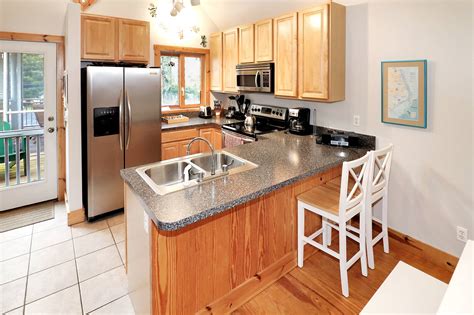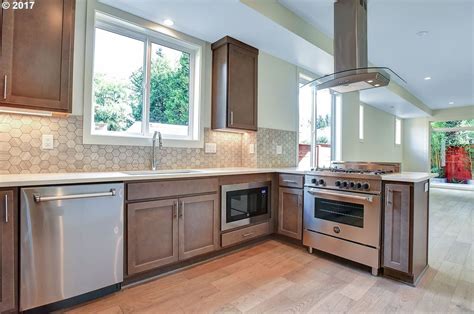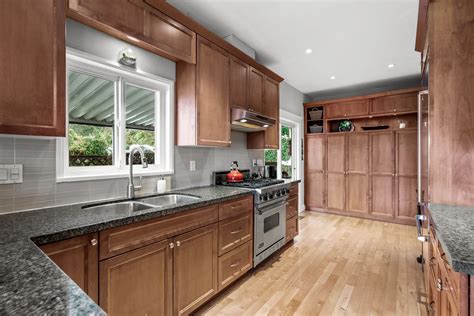Finding reliable plumbers is crucial when it comes to elderly care, as proper plumbing directly impacts health, safety, and overall well-being. Aging households often face common plumbing issues that, if left unresolved, can lead to unsafe living conditions. From water leaks to faulty fixtures, these problems may pose significant risks, especially for seniors with mobility or health challenges. This article offers essential tips on how to find reputable local plumbers, check their credentials, and ensure they understand the unique needs of elderly care. Additionally, we’ll explore cost considerations, timely maintenance, and the importance of choosing professionals who prioritize safety and reliability.
ujocis.net will lead a thorough examination of this topic.
1. Importance of reliable plumbing for elderly health and safety
A well-functioning plumbing system is crucial for the health and safety of elderly individuals. Seniors often face unique health challenges and mobility limitations, making it essential to prevent potential hazards like leaks, clogs, or water damage. These issues can lead to slips, falls, and other accidents, posing serious risks to their well-being. Moreover, access to clean and readily available water is vital for hygiene, hydration, and overall health. Any problems with water quality or pressure can significantly disrupt daily activities such as bathing, cooking, and cleaning, impacting their quality of life.
Elderly households are particularly susceptible to the dangers of undetected plumbing issues. Hidden leaks can lead to mold growth, a significant health hazard that can trigger respiratory problems and worsen pre-existing conditions like asthma or allergies. Moreover, seniors may not recognize or react to plumbing emergencies as swiftly as younger people, making proactive maintenance essential. Early intervention is vital to prevent minor plumbing problems from escalating into serious health risks for the elderly.
Reliable plumbing services play a vital role in creating a safer living environment. By proactively addressing potential risks through regular inspections and timely repairs, we can prevent long-term damage, improve water efficiency, and minimize the likelihood of hazardous situations. Furthermore, plumbers who understand the specific needs of elderly care can provide solutions that enhance accessibility and safety. This includes installing grab bars in bathrooms and recommending modifications to make plumbing fixtures more user-friendly for seniors.

2. Common plumbing issues in elderly households
Elderly households often face unique plumbing challenges due to the age of their homes and the needs of their residents. Low water pressure, a common problem, can hinder daily tasks like showering, dishwashing, and even using the toilet for seniors with limited strength or mobility. Additionally, older plumbing systems are more susceptible to leaks, which can result in water damage, mold growth, and slip hazards if not addressed swiftly.
Clogged drains are a frequent problem in homes occupied by seniors, especially in bathrooms. Hair, soap scum, and other debris build up over time, leading to blockages. These blocked drains can create unsanitary conditions and disrupt daily routines, making life more difficult for those who depend on reliable water systems. Moreover, aging water heaters may struggle to provide consistent hot water, which can be uncomfortable and even hazardous for seniors, particularly during colder months.
Over time, aging fixtures and pipes can corrode or fail, potentially resulting in unexpected bursts or compromised water quality. This can manifest as discolored or contaminated water, posing health hazards if used for drinking, cooking, or bathing. Regular maintenance and prompt repairs are crucial for addressing these common plumbing problems, safeguarding the safety and comfort of elderly residents.

3. How to find reputable local plumbers
To ensure that plumbing issues in elderly households are addressed expertly and promptly, it’s crucial to locate reputable local plumbers. A good starting point is to seek recommendations from family, friends, or neighbors who have had positive encounters with local plumbing services. Word-of-mouth referrals are often a reliable method for identifying trusted professionals with a proven history of quality service in the community.
Online platforms can be a valuable resource when seeking a reputable plumber. Websites such as Yelp, Google Reviews, and the Better Business Bureau (BBB) offer access to customer reviews and ratings, providing insight into a plumber’s professionalism, punctuality, and overall quality of service. When searching, prioritize plumbers specializing in residential services and possessing experience working with elderly residents.
Reaching out to local senior centers or aged care organizations can also be beneficial. These organizations may have recommendations for trusted plumbing professionals who are familiar with the unique requirements of seniors. Furthermore, numerous municipalities keep a record of licensed plumbers. Consulting this list can provide assurance that the chosen plumber is certified and adheres to local regulations.
To find a dependable local plumber who can meet the specific requirements of elder care, a combination of personal recommendations, online research, and verified credentials is key.

4. Checking credentials and licenses of plumbers
It is essential to verify a plumber’s credentials and licenses to ensure they are qualified to perform plumbing work safely and effectively. This is particularly important in households with elderly residents, where safety is of paramount concern. Licensed plumbers must meet specific standards set by local or state authorities, guaranteeing they possess the necessary skills and knowledge to execute plumbing tasks correctly.
Before hiring a plumber, take the time to verify their credentials. Ask for their license number and contact your local licensing authority to confirm its validity and current status. Many states maintain online databases for convenient verification. This essential step helps safeguard against unqualified or fraudulent individuals who may lack the necessary expertise for the job.
Beyond a license, it’s crucial to verify if the plumber holds insurance. This safeguards both the homeowner and the plumber against accidents or damage that may occur during work. Liability insurance and workers’ compensation coverage are paramount to prevent unforeseen costs or legal entanglements.
When hiring a plumber, it’s crucial to verify their licensing and insurance. This helps minimize the possibility of substandard work or unsafe repairs, especially when catering to the plumbing requirements of senior citizens.
5. Reading reviews and getting recommendations
Finding a trustworthy plumber is crucial, especially for elderly households where safety and reliability are top priorities. Leveraging online resources like Google Reviews, Yelp, and Angie’s List is essential. These platforms offer invaluable insights into the experiences of past customers, allowing you to assess a plumber’s reliability, workmanship, and customer service. Pay close attention to reviews that consistently praise punctuality, professionalism, and the effectiveness of repairs.
Besides online reviews, personal recommendations from trusted sources like family, friends, or neighbors can be invaluable. These individuals are likely to offer honest insights into their experiences, helping you find plumbers who have a proven track record within your community. Additionally, consulting local senior centers or community organizations can be beneficial, as they often maintain lists of reputable plumbers who are experienced in serving elderly clients.
When evaluating plumber reviews, assess their approach to addressing complaints and issues. A responsive and attentive service provider reflects a dedication to customer satisfaction, which is crucial when addressing the plumbing needs of seniors. Combining online reviews with personal recommendations will equip you with the necessary information to make a well-informed decision, ensuring you select a plumber who is both dependable and adept at meeting the specific needs of elderly care.
6. Importance of timely plumbing maintenance
Regular plumbing maintenance is crucial for the well-being of elderly households. By conducting routine inspections and addressing problems early, minor issues can be prevented from turning into major ones. These major problems can pose serious health risks, especially for seniors. Even a small plumbing leak can cause slips and falls or lead to expensive water damage, impacting their living environment.
Regular maintenance by plumbers helps to identify and address potential problems in your plumbing system, such as low water pressure, leaks, or corroded pipes. By proactively addressing these issues, plumbers ensure the system operates efficiently and safely. This not only extends the life of your plumbing fixtures and appliances but also improves water quality, a crucial factor for maintaining good hygiene and health.
Regular plumbing maintenance plays a crucial role in maintaining independence for elderly individuals. By preventing disruptions to essential daily activities like bathing and cooking, timely upkeep ensures a safe and comfortable living environment. This investment in plumbing health minimizes potential hazards and contributes to a higher quality of life for loved ones.
7. Cost considerations and getting estimates
Cost considerations are paramount when addressing plumbing issues in elderly households, given their often limited budgets. Understanding the potential expenses and obtaining accurate estimates is crucial for families to make informed decisions about plumbing services. When seeking a plumber, it’s advisable to request detailed estimates from multiple professionals to compare prices and services, ensuring a fair and competitive rate.
Remember that the cheapest option isn’t always the best when it comes to plumbing. It’s crucial to factor in a plumber’s experience, their reputation, and the quality of materials they use. Opting for cheap, low-quality repairs can lead to repeated problems down the line, costing you more in the long run.
Moreover, it’s essential to ask about potential surcharges for emergency services or calls outside regular business hours, as these fees can substantially affect the final cost. Certain plumbers may offer discounts for senior citizens or for customers who sign up for routine maintenance contracts, which can be a valuable way to control expenses.
In conclusion, investing in high-quality plumbing work offers significant long-term advantages. By prioritizing proper maintenance and reliable repairs, families can avoid costly emergencies and extensive damage in the future. Proactively addressing plumbing issues and obtaining estimates helps ensure that families can access essential plumbing services without incurring excessive financial burdens.
8. Ensuring plumbers understand the specific needs of elderly care
Providing compassionate and effective plumbing services to seniors demands a specialized understanding of their needs. Plumbers must be cognizant of the unique challenges faced by the elderly, including mobility limitations, health considerations, and the necessity for accessible fixtures. When selecting a plumber, clearly communicating these specific requirements is crucial.
Seek out professionals who show a commitment to understanding and adapting their services to meet the unique needs of elderly individuals. This may involve recommending user-friendly fixtures, such as lever faucets or raised toilet seats, which can enhance comfort and accessibility for seniors.
Moreover, experienced plumbers must be well-versed in safety features. This includes installing grab bars or ensuring adequate drainage to eliminate slip hazards. Additionally, they should be equipped to address inquiries about how plumbing work might affect the daily lives of elderly residents.
Selecting plumbers who understand the unique needs of elderly individuals allows families to establish a safer, more comfortable living environment. This ensures that plumbing solutions are not only practical but also cater to the specific needs of their loved ones, promoting their overall well-being.
In conclusion, finding a reliable plumber is essential for maintaining the health and safety of elderly individuals. By understanding common plumbing issues, checking credentials, reading reviews, and ensuring timely maintenance, families can make informed decisions. Choosing plumbers who prioritize the unique needs of seniors fosters a safer living environment, ultimately enhancing their quality of life and promoting peace of mind for caregivers.
ujocis.net

